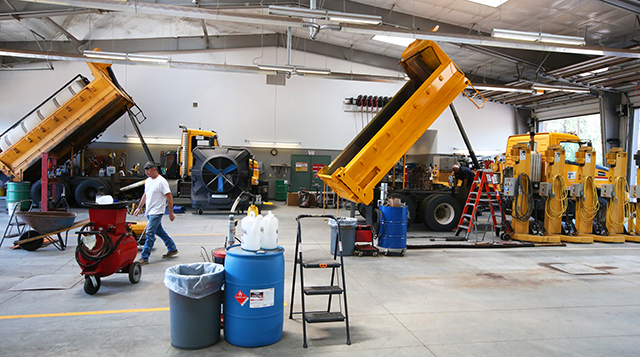Guest column: Support more statewide funding for CASA
Published 12:00 am Sunday, July 15, 2018

- Guest Column
A federal judge recently rejected the Trump Administration’s request to allow long-term detention of illegal immigrant children.
While this is an encouraging step in the right direction, it is disheartening that the administration is still defending its policy to separate children from their families, even after the president’s vow to end the practice.
Trending
The administration has now missed the deadline to reunify the youngest detainees with relatives, a not unexpected turn of events in this saga.
As a professional organization that works in the field of child abuse, CASA (Court Appointed Special Advocates) of Central Oregon stands with other child welfare organizations that have voiced outrage at the inhumane separation of innocent children from their parents at the southern border.
Because of the well-established, long-term impacts of childhood trauma, including the trauma of being separated from family, one of the guiding principles at CASA is that children are better off when they remain with their families of origin if safely possible.
The judge’s recent decision makes clear that Trump’s recent declaration to end the inhumane practice of separating families will not help reunite the more than 2,300 children currently being warehoused without their families, some of whom are now in Oregon.
Because these children are in federal custody and subject to federal immigration laws, they are not subject to the state law that requires a child to be appointed a CASA.
If the American child welfare model had proven to be efficient, compassionate and effective, CASA of Central Oregon would perhaps be content that these injustices would be quickly fixed.
Trending
But sadly, that is far from the reality. National news put a lens on the tragedy at the border but rarely puts a lens on the local children who, every day, go without an advocate to speak up for them.
We Oregonians must do better than this.
In many states throughout the country, CASA programs are fully supported by public funding. It is not acceptable that statewide funding for CASA in Oregon is so small that despite vigorous fundraising and grant writing to make up the shortages, about 60 percent of the 11,000 children in foster care across the state are on a wait list for a CASA advocate — an individual who, by state law, shall advocate for the child’s best interest in all court proceedings.
If we cannot fully serve these young citizens who are victims of abuse or neglect, how on earth do we presume we can care for thousands of innocent children separated from their relatives at the border?
It is everyone’s responsibility to speak up for all children who are hurting and who are without a voice. It should be the culture of our country and our citizens to do so without hesitation, regardless of the politics or circumstances.
Please continue to be outraged at the cruel treatment of children all over the world — and please consider what you can do right here in our community to make a real difference.
CASA of Central Oregon has offices in Madras, Prineville and Bend, and will train and support over 140 community volunteers who will serve the more than 550 local children expected to spend time in foster care this year due to abuse or neglect.
For more information on how to make a difference here in Central Oregon, please visit casaofcentraloregon.org.
— Jenna App is executive director of CASA of Central Oregon.








